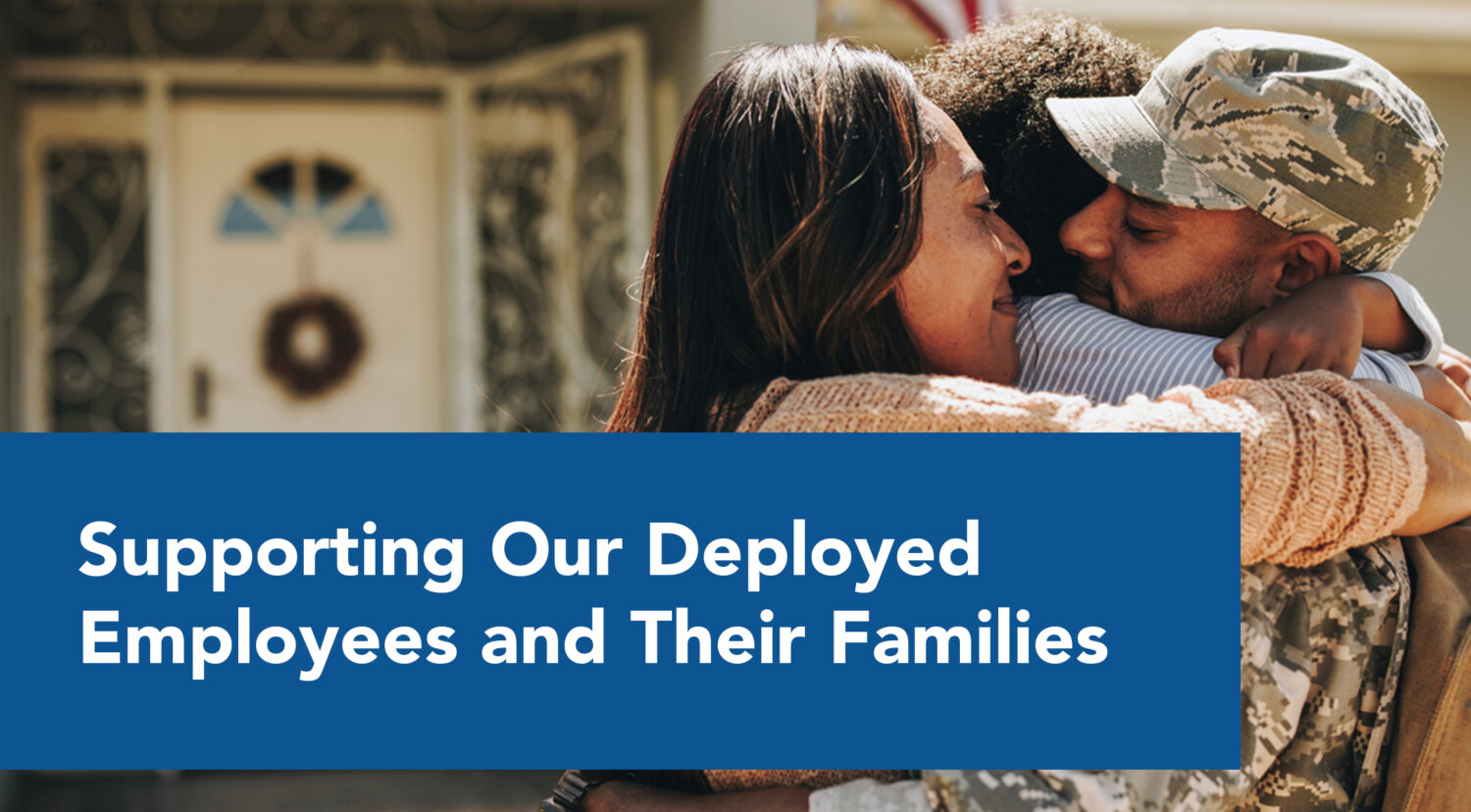

Hello my HR Friends,
This Saturday, October 26th marks the National Day of the Deployed, a day dedicated to honoring the brave men and women who serve our country overseas, as well as recognizing the sacrifices made by their families. For HR professionals like us, this is an important opportunity to reflect on how we can better support our employees who are deployed, those who have loved ones serving abroad, and veterans returning to the workforce.
The contributions of deployed employees and veterans are invaluable, not only to our country but also to the companies and organizations that they are a part of. Today, let’s explore ways we can foster a supportive work environment for these individuals through policies, benefits, diversity and inclusion practices, and Affirmative Action obligations for federal contractors.
Understanding the National Day of the Deployed
The National Day of the Deployed was first recognized in 2006, when North Dakota declared the day to honor deployed service members. Since then, it has grown into a national observance. The day highlights the dedication and courage of our military personnel and acknowledges the strain placed on their families in their absence. While the day focuses on recognizing those currently deployed, it also offers a moment to reflect on how businesses can best support employees both during and after their military service.
Supporting Deployed Employees: A Responsibility for HR
For organizations with employees who are actively serving in the military reserves or National Guard, deployment can bring unique challenges. However, with the right policies and mindset, HR professionals can ensure that these employees feel valued and supported throughout their deployment and when they return.
Here are a few key strategies to consider:
- Leave Policies That Support Deployed Employees:
- Ensure your organization’s military leave policies are clear and compliant with the Uniformed Services Employment and Reemployment Rights Act (USERRA), which protects employees who serve in the military. Under USERRA, employers are required to grant unpaid leave for military duty and guarantee reemployment in the same or a comparable position upon their return. Make sure these policies are communicated effectively so employees are aware of their rights.
- Keep Communication Open:
- Maintain communication with deployed employees, ensuring they remain connected to the organization even while serving abroad. Consider sending regular company updates, care packages, or messages of encouragement to show your appreciation for their service and remind them that they are still part of the team.
- Supporting the Families of Deployed Employees:
- The families of deployed employees often carry the weight of their loved one’s absence. Offering flexible work arrangements or paid time off for spouses or family members of deployed employees can provide them with the support they need to manage family responsibilities during this challenging time. Additionally, consider offering resources such as counseling services or access to employee assistance programs (EAPs) to help families cope with the emotional toll of deployment. Beware: There may be pushback from other departments such as Finance since these resources aren’t free. However, it’ll help maintain the morale and productivity of your deployed employees when they return in addition to simply being good things to do for people.
- Planning for Reemployment and Reintegration:
- When deployed employees return to the workforce, it’s essential to provide a smooth transition back into their roles. Consider offering re-onboarding sessions to update returning employees on any changes within the organization during their absence. Providing resources such as mental health support or career counseling can also help them navigate the transition from military to civilian life.
Affirmative Action Compliance for Federal Contractors
If your organization is a federal contractor or subcontractor, it’s essential to be aware of the Affirmative Action requirements established under Section 4212 of the Vietnam Era Veterans’ Readjustment Assistance Act (VEVRAA). This law mandates that federal contractors take affirmative action to hire and advance in employment qualified veterans, including disabled veterans and those recently separated from the military.
To remain compliant, federal contractors must:
- Set measurable hiring benchmarks for veterans.
- Conduct outreach to veteran organizations and ensure recruitment efforts actively seek out veterans, particularly those with service-related disabilities.
- Track and report on the hiring and retention of veterans within the workforce through the VETS-4212 report.
By following these requirements, not only do you comply with federal regulations, but you also ensure that military veterans and military personnel receive fair treatment and equal employment opportunities. Affirmative Action policies for veterans go beyond compliance; they are a testament to your organization’s commitment to valuing the skills and experiences veterans bring to the workforce.
Fostering Inclusive Workplace Practices for Veterans and Military Families
In addition to supporting deployed employees, it’s important for HR professionals to foster an environment that is inclusive and respectful of military families and veterans in the workplace. By incorporating military-friendly policies and benefits into your organization, you signal that you value their contributions and experiences.
Here are a few ways to ensure your workplace is welcoming for veterans and military families:
- Inclusive Hiring Practices:
- Actively recruit veterans and individuals with military experience by partnering with veteran organizations or job boards that specialize in connecting veterans with employers. Military personnel often bring transferable skills such as leadership, problem-solving, and discipline to the workplace, making them valuable team members.
- Sometimes how these skills translate to your business are not directly stated since applicants who have recently returned from deployment may not themselves know how to describe it. Be ready to think creatively—but fairly!—about what you see on their resumes. (This isn’t to say hire people who aren’t qualified. There still needs to be a legitimate business reason for any hire. Just make sure to document everything.)
- Provide Veteran-Specific Benefits:
- Offering benefits tailored to veterans, such as counseling services for post-traumatic stress or specialized health plans, shows your commitment to supporting their unique needs. Partner with veterans’ organizations to identify what benefits would be most meaningful to your employees.
- Create Employee Resource Groups (ERGs):
- Establish ERGs for veterans, current personnel, and military families, where employees can share experiences, offer support, and advocate for necessary resources. These groups can also provide valuable insight to HR professionals on how to create more supportive policies for military personnel and their families.
- Recognize and Celebrate Contributions:
- Take time to recognize and celebrate the contributions of veterans and deployed employees on days like the National Day of the Deployed, Veterans Day, and Memorial Day. Acknowledging these individuals’ sacrifices and service demonstrates your organization’s respect and gratitude for their efforts.
The Importance of Long-Term Support for Our Deployed Employees and Veterans
While the National Day of the Deployed provides a dedicated opportunity to honor deployed employees and their families, it’s essential that our support extends beyond this day. Continuous, thoughtful support for deployed employees and veterans fosters loyalty, improves employee well-being, and contributes to a positive, inclusive workplace culture.
Standing with Our Deployed Employees and Veterans
As we observe the National Day of the Deployed, let’s take a moment to honor the brave individuals who serve our country overseas and the families who support them. As HR professionals, we have a responsibility to ensure that our deployed employees and veterans feel appreciated, supported, and empowered both during and after their service.
Thank you for your ongoing commitment to supporting your deployed employees, their families, and the veterans in your workplace.
HR Unlimited, Inc. specializes in helping federal contractors and employers effectively meet their AAP and EEO compliance obligations. Please contact us to discuss any of your questions, concerns, or needs in this area.





